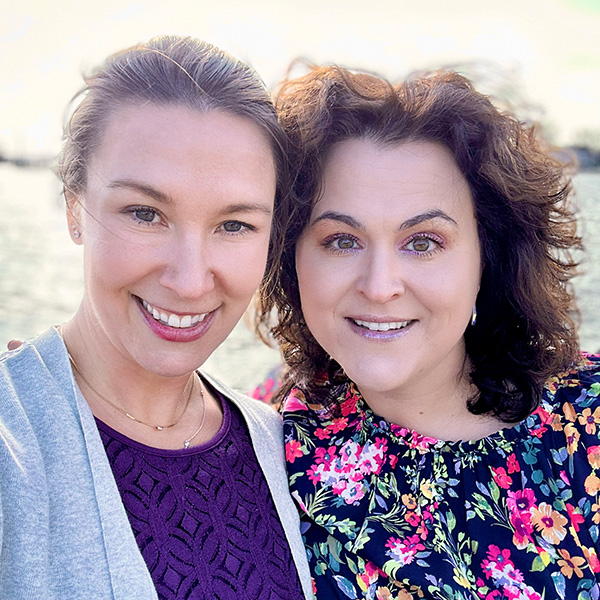Coping is not a one size fits all kind of situation. Not only do we have varied preferences in how we cope best, but different situations call for unique coping responses and strategies. With this in mind, and building on the theme of coping ahead, it is valuable to have a number of ways stored within you to match how problems or stress show up in life. For instance, the way I coped with spilling my coffee in the morning is very different to how I would manage something more serious and long lasting. If you have never considered different ways you respond to problems or stress, take a moment now to think about it.
If we zoom out and take a very broad perspective, the ways in which we cope can be put into two buckets: Helpful and Healthy (HH) or Unhelpful and Unhealthy (UU). Imagine that these live on either end of a seesaw, a visual of coping on a continuum.
HH coping strategies help you deal with the stressor or problem by building resilience, leveraging the control that is within your power to take, and processing, integrating, or healing from the stressful situation or problem. Over time, even though the stressor itself might not go away, using HH coping strategies is an excellent way of caring for yourself. HH coping can effectively protect you and even move you towards a space of both emotional and physical wellness.
On the other hand, the UU coping is a strategy that typically encourages avoidance or numbing. This can be protective in the short term because it essentially lets you punt the challenging and overwhelming emotions or problems. However, by doing this over and over again, you are basically saying “I don’t think I’m strong enough to handle this so I’m going to kick it down the road for a future version of me to deal with.” But, if used consistently and over time, often these unhealthy strategies exacerbate the problem or stress rather than accomplishing the initial aim of improving the issue. We ironically expect that future version of ourselves to magically be ready to deal with the problem without actually preparing or practicing for it. And thus, the urge to avoid or numb becomes stronger and the cycle continues.
It can be so common to think about coping strategies as either “good” or “bad” but actually, many coping strategies can be conceptualized on a continuum. For example, visiting a winery and savoring a glass of wine with a close friend might be HH coping for some people, while excessive alcohol use over time may negatively impact many areas of life and equate to UU coping.
Ultimately, it is important to curate your coping so that your approach is individualized for your needs.
Some examples of what we consider to be HH coping skills:
- Using a curious mindset to figure out what you need
- Deep breathing to re-set your nervous system
- Setting clear boundaries for yourself
- Letting yourself laugh
- Letting yourself cry
- Mindfulness or meditation to bring yourself back to the present moment
- Scheduling time for yourself
- Moving your body in a way that feels good to you
- Reading or watching something uplifting, enjoyable, or funny
- Spending quality time with friends, family, or animals
- Spending time in nature
- Letting your creative side shine
- Honoring your sleep needs
- Honoring your nutrition and hydration needs
- Seeking mental health care or medical care
- Activating your village of support
What would you add to this list? Share it with the YVJ community!
Regardless of the type of stressor or change, our body and brain respond by becoming activated; it is ready to spring into action to contend with the problem. Your choice of coping will have a direct impact on how quickly you regulate and how you handle the situation. For some, the term coping itself may be so affiliated with negative connotations related to stress that this adaptive technique of coping ahead is a tough one to implement. If this resonates, simply call it something else. Call it “growing” or “adapting ahead” or use our “HH” acronym. Most importantly, find what works for you. Coping is something we can curate to be part of our on-going journey. Something to fold into our lifestyle and our village of support so that it becomes a seamless and integrated part of how we live our lives, how we interact with others, and how we take care of ourselves.
Joy in the Journey,
J & J
Share this article...

Meet Drs. Jessica Lawson & Jennifer Doran
Jess and Jenn are clinical psychologists, working parents, colleagues and friends. We believe in the the power of psychology and in having a connected and supportive community – a village. Our Blog posts and videos are designed to be short in nature – something you can tune into for 5 minutes a day or less.





